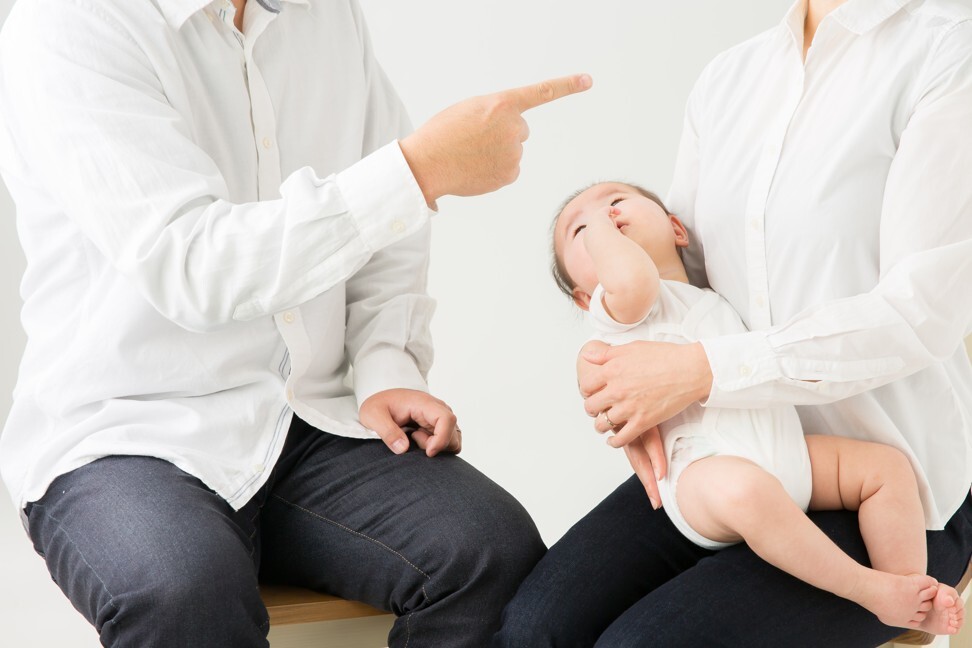
Intimate relationships and parenthood: how to make time for each other and baby, and why your sex life may take time to spark afresh
- Relationships need proper maintenance and a new baby can put them under strain – but with teamwork you can overcome that and grow closer together than ever
- Take the time to care for yourself, stay connected with friends, communicate openly with your partner – and if you are not ready, build towards having sex again
Different people respond to parenthood in different ways.
Some couples worry that it spells the end of romance and that it could have a negative effect on their sex life, whether because of a loss of free time or depleted energy levels.
But there are others who embrace the change, as they see it as a first step to building an even stronger partnership – and, ultimately, a loving family unit.

Still, it’s not necessarily all bad – so as long as both of you are prepared to work together as a team.
You deplete me: when to leave a toxic relationship
In the long run, it means you have built a strong foundation to help you weather the ups and downs of not just parenthood but also your partnership.
Relationships need proper maintenance and it’s especially important to have a solid base in place after having a baby. Unfortunately, we sometimes forget to maintain our relationships during seasons of change.

Dr Kristin Zeising, a clinical psychologist and certified sex therapist, explains why some relationships change or even fail after a baby has arrived.
“Couples may have unrealistic expectations and be overwhelmed when a new child arrives. It may be a time of great joy and celebration for couples but can also be a time of great adjustment.
If you tend to get stressed and negative, shift your attention, and practise gratitude and think of three things you are grateful for, no matter how small
She adds that the pure exhaustion can cause partners to take their stress out on each other, which may be a shift in their dynamic that catches them off guard.
In dealing with the baby blues, Zeising says: “Have compassion towards yourself. Recognise that you are going through a life-changing experience and not expected to be perfect. You have a lot to learn and allow yourself the grace to do so.”
It is also important to stay connected with friends and other mothers to have a support system. “Have someone you trust watch the baby for an hour, so you can grab a quick lunch with a friend. Join a group of other mums so you can share experiences and you will not feel alone.”

“If you tend to get stressed and negative, shift your attention, and practise gratitude and think of three things you are grateful for, no matter how small. Take time out for this routine every night to help keep your perspective positive.”

Good communication is also necessary to minimise conflict and promote understanding during this life-changing juncture, she points out.
“Take the team approach. You are in this together, so you need to decide ahead of time who gets up with baby, who deals with doctor appointments, etc. The more you can be proactive about the upcoming demands, the less you will argue about who will deal with them in the moment.
‘Tinder for mums’ aims to build support community for parents
Last but not least, having a new baby doesn’t mean the end of your sex life.
“Ask yourself what you need to feel open for desire. How can you invite yourself to feel desire? Be curious about yourself. All things are possible, what do you want to create? Remember that you are in a unique time in your life and be patient with yourself and your partner.”

She warns that during the early stages of motherhood a woman may not feel comfortable having intercourse because of medical reasons, fatigue or hormonal issues.
However, it’s important to be flexible and open to these changes in the sexual dynamics.
For example, she says if intercourse seems too energetic during early pregnancy, then couples could enjoy sexual behaviours “above the waist” or engage in “outercourse”. Touching, fondling, and caressing the body can all be pleasurable without the pressure of the potential discomfort of intercourse.
How to stop jealousy from destroying your relationship
“Expand what you consider ‘intimacy’. Bathing one another or exchanging massages can help you feel close and keep the relationship feeling special or explore one another with no outcome goal, other than to explore pleasure, builds sexual repertoire and results in much more experience of pleasure,” Zeising says.
Luisa Tam is a correspondent at the Post

